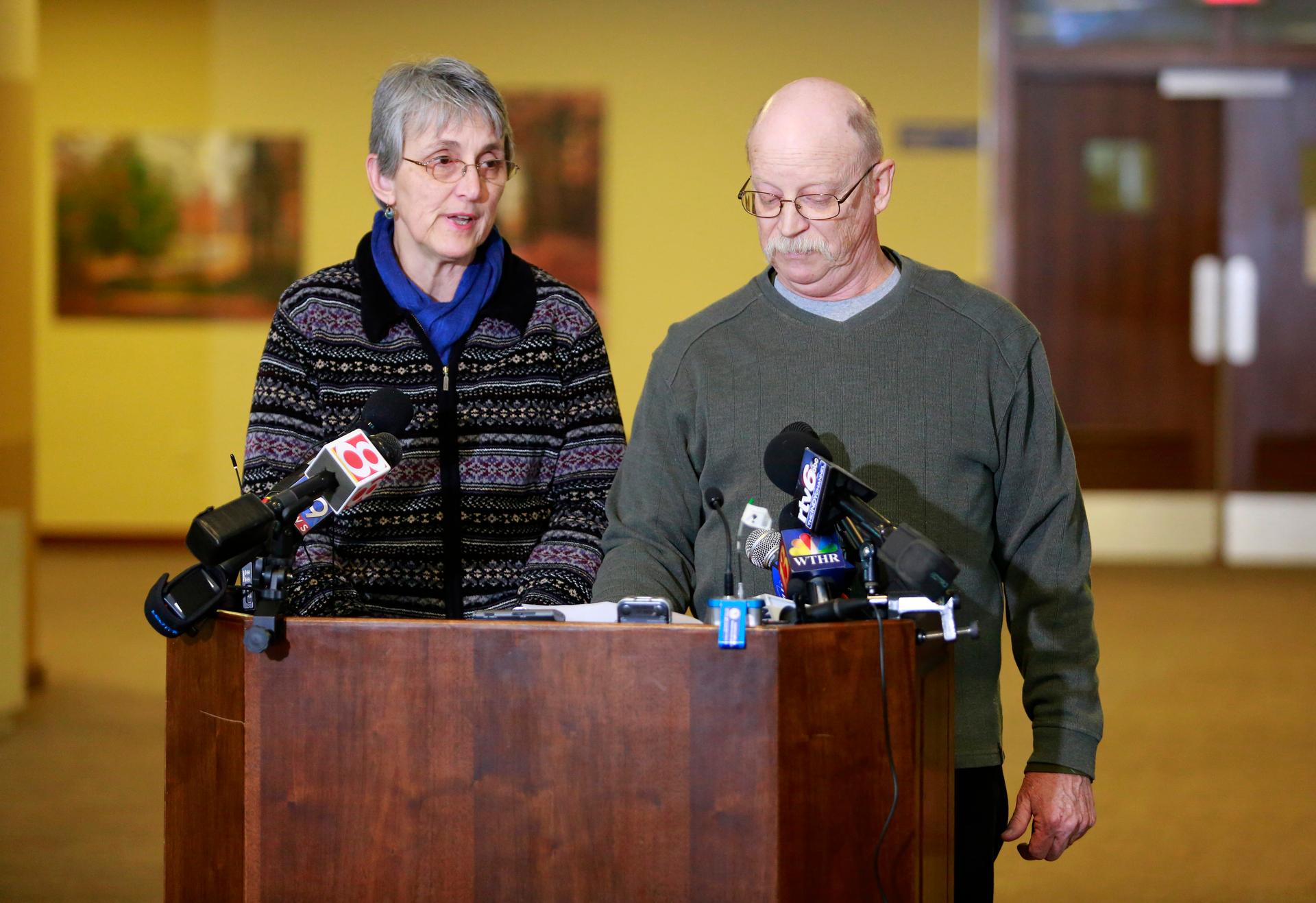The Obama administration says it will review its policy of not negotiating with terrorists
Paula, left, and Ed Kassig, parents of US aid worker Peter Kassig who was beheaded by ISIS militants, read from a prepared statement while speaking to the press in Indianapolis, Indiana, November 17, 2014. T
ISIS announced this past weekend that it had executed a third American hostage, Peter Kassig. In the aftermath of his death, the Obama Administration announced it would conduct a full review of the US policy on (not) negotiating with terrorists in hostage situations.
The review was disclosed in a letter from Christine Wormuth, the undersecretary of defense for policy, addressed to Republican Congressman Duncan Hunter. Wormuth calls for a "specific emphasis on examining family engagement, intelligence collection and diplomatic engagement policies."
Unlike European governments, which have paid millions of dollars in ransoms, the US government has a strict rule of not negotiating with captors. That does not preclude private firms from negotiating on behalf of hostages with insurance, however that's something the White House has advised against.
“Our views on this are clear, and the president continues to believe, as previous presidents have concluded, that it's not in the best interest of American citizens to pay ransoms to any organization, let alone a terrorist organization that is holding an American hostage," White House Press Secretary Josh Earnest said during a briefing earlier this week. "The reason for that is simple: We don't want to put other American citizens at even greater risk when their around the globe.”
Christopher Voss, a 24-year veteran of the FBI, who served as the lead international hostage negotiator, says America’s current policy is riddled with nuance. Voss is now the CEO of the Black Swan Group, a negotiation advisory firm.
“The policy is not that we won’t negotiate with terrorists, the policy is that we won’t make concessions to terrorists,” he says. “You shouldn’t be afraid to communicate with anybody, and sometimes the policy is misconstrued to make it sound as if we’re afraid to talk to people. And sometimes it’s enacted in that way also — the government acts like it’s afraid to talk people.”
In the aftermath of the horrific beheadings carried out by ISIS, which also calls itself the Islamic State, there have been complaints from some of the victims’ families. They say the US government seemed concerned, but it also appeared that there was a lack of urgency when it came to hostage negotiations.
“[Families] probably had reason to feel that the government wasn’t particularly involved in helping them,” Voss says. “I think that recently, the government has not known what to do and has not supported the families well.”
Voss says the government views these hostage situations as black and white — if officials cannot conduct a rescue immediately, they often feel that they can’t help.
When it comes to independently paying a ransom to a terrorist group, Voss says families can do so at their own risk, but he says the government may attempt to stop them with the threat of prosecution.
“They can’t stop the insurance companies from having consultants that support the families in other ways,” he says. “It’s kind of like watching a robbery happen to someone. These families are victims of crimes, it’s not just their family members that are being killed — the entire family is being victimized.”
Voss says government officials should communicate with terrorist groups, even if a clear avenue to rescue is unavailable because a dialogue may support other outcomes.
“For the government to stand back and say, ‘We’re not going to help you and we’re not going to let anyone else help you either,’ it’s just not good for its citizens,” he says.
This story first aired as an interview on The Takeaway, a public radio program that invites you to be part of the American conversation.
